Discover NTNU Energy Transition Podcast
NTNU Energy Transition Podcast

NTNU Energy Transition Podcast
Author: NTNU Energy Transition Initiative
Subscribed: 55Played: 1,852Subscribe
Share
© NTNU Energy Transition Initiative
Description
The NTNU Energy Transition Podcast is a knowledge hub that aims to empower individuals and organizations in Norway, Europe and beyond to tackle climate change and move our global society towards carbon neutrality.
New episodes every second Thursday.
The podcast is hosted by the NTNU Energy Transition Initiative which was established to deliver world-leading research on energy transition strategies to achieve the Paris ambitions. You can find us on Twitter, LinkedIn, and on our webpage. Please reach out by mail to "julius.wesche@ntnu.no".
Webpage ntnu.edu/energytransition
New episodes every second Thursday.
The podcast is hosted by the NTNU Energy Transition Initiative which was established to deliver world-leading research on energy transition strategies to achieve the Paris ambitions. You can find us on Twitter, LinkedIn, and on our webpage. Please reach out by mail to "julius.wesche@ntnu.no".
Webpage ntnu.edu/energytransition
90 Episodes
Reverse
In this on-site episode from grid operator Tensio’s control centre in Stjørdal, we sit down with CEO Audhild Kvam to unpack one of the green transition’s biggest chokepoints: limited grid capacity.Together we explore:How smarter planning and flexible consumption can unlock idle capacity for batteries, hydrogen and heavy transportWhat it takes to connect new industry when 100+ projects are already in the queueThe policy tweaks and market signals that could turn today’s “capacity crunch” into tomorrow’s competitive edge for NorwayWhether you’re an energy nerd, a policymaker, or just curious why electrification keeps hitting the same bottleneck, this conversation lights the way forward.
On 28 April, the entire Iberian Peninsula plunged into darkness in under 30 seconds. How can a modern, interconnected grid fail so spectacularly—and what does it teach the rest of Europe?I sat down with Kjetil Obstfelder Uhlen—Professor at NTNU's Department of Electric Energy and special adviser to Statnett—to reconstruct the split-second cascade that tripped lines from France to Morocco, sent frequency crashing below 50 Hz, and left millions without power.Together we talk about:Why a single imbalance spiralled into a continent-wide blackoutThe hard limits of interconnection, inertia and protection schemesWhether renewables were really to blame—or just convenient scapegoatsHow Norway’s hydro-heavy grid would cope with a similar shockConcrete fixes: synthetic inertia, smarter system-protection, and cross-border coordination
In Episode 84, clean‑energy luminary Michael Liebreich joins the show to unpack why oil giants like Shell and BP appear to be throttling back on renewables just as the climate crisis intensifies. Drawing on decades in clean-tech finance and heavy-transport electrification, Liebreich argues that the pivot is less a U-turn than a short-term cash grab—and that the physics and economics of “not burning stuff” will ultimately win.Expect candid takes on capital markets, policy headwinds, and where the smartest money is flowing now, all delivered with Liebreich’s trademark data-driven bluntness.
Norway’s electricity system is at a crossroads. With rising consumption, stable production, and an evolving energy mix, the big question is: will we have enough power in the years ahead?In this episode, we sit down with Ane Torvanger Brunvoll, Head of the Energy System Section at NVE (Norges vassdrags- og energidirektorat), to break down the state of Norway’s electricity supply. We’ll explore how the system has evolved, the trends shaping its future, and whether concerns about an energy deficit are justified.What role will wind and solar play? How will industries like data centers and e-fuel production impact demand? And what actions can we take to ensure a stable and resilient grid?Join us for a deep dive into the future of Norway’s electricity system.
In this episode, we examine Equinor’s mergers and acquisitions (M&A) strategy and explore a key question: Can oil and renewables coexist within the company and in Norway’s broader energy landscape?
Per Arne Solend, VP of M&A and Insights at Equinor, joins us. He shares his perspective on how the company navigates fossil fuels and renewables acquisitions. We discuss the rationale behind Equinor’s recent investments, the role of M&A in the energy transition, and how the company balances its legacy oil and gas operations with its push into offshore wind, batteries, and emerging low-carbon technologies.
Co-hosting this episode is Martina Fantini, a PhD researcher at NTNU specializing in sustainable aviation.
Tune in to learn how Equinor makes strategic decisions in a rapidly evolving energy landscape—and what the future might hold for oil, gas, and renewables in a transitioning world.
In this episode, we explore the feasibility of sustainable aviation fuels (SAF) and Norway's potential role as a global hub for their production. I am joined by three distinguished guests: Anders Fagernæs, Vice President of Sustainability at Norwegian Air Shuttle; Steven Gillard, Regional Director – Europe and METACA Sustainability; and Karl Hauptmeier, Managing Director of Norsk e-Fuel.
Recorded in Norwegian Air Shuttle's hangar at Oslo Gardermoen Airport, the conversation covers Boeing's partnership with Norsk e-Fuel, the challenges and opportunities for scaling SAF, and how policy and innovation can drive aviation decarbonization. The discussion delves into competing technologies like hydrogen and electric propulsion, industry goals for 2030 and 2050, and the critical need for collaboration across sectors.
Tune in to learn about the future of clean aviation and Norway’s position in this transition.
In this episode we look at a debated topic in the energy sector today: the role of nuclear power. Joined by Professor Magnus Korpås, Vice Director of NTNU Energy at NTNU, and Dr. Martin Hjelmeland, a postdoc with expertise in nuclear research, the discussion covers the potential and pitfalls of nuclear energy in Norway and Europe.
From the promise of small modular reactors (SMRs) to the challenges of nuclear waste management and public acceptance, this episode explores how nuclear can potentially help us achieve our 2050 decarbonization goals. The conversation also highlights cutting-edge research on nuclear’s role in energy systems and debates the economic viability of nuclear technologies versus renewables like wind and solar.
Tune in for a nuanced discussion on one of the more polarizing topics in energy today.
Explore Norway's role in the offshore wind industry, focusing on floating wind technology. Our guest, the cluster manager for Norwegian Offshore Wind and head of the METCentre, Arvid Nesse, shares insights into how Norway became a global leader in floating offshore wind innovation.
We dive into the origins of the METCentre, home to the world’s first floating wind turbine, and discuss the development of the Norwegian Offshore Wind Cluster, now boasting nearly 400 members. Topics include the challenges of scaling floating wind technology, the integration of expertise from Norway's oil and gas sector, and the vision for exporting Norwegian innovations to international markets.
How do we prepare Norway's grid for the future? The strain on the grid is increasing as the energy demand undergoes significant shifts with the rise of renewable sources and power-intensive industries like data centers and hydrogen production. Our guest expert in this episode, Jonas Alexandersson explains the complexities of grid connections, the integration of new technologies, and the economic and technical analysis required to meet both consumer and producer needs.
In this episode, we sit down with Tim Heijn, Managing Director of Northern Lights, to explore the carbon capture and storage (CCS) project transforming CO2 management in Europe.
Tim shares insights from his extensive career in energy, from his time at Shell, Maersk Oil, and TotalEnergies, to his current role leading Northern Lights’ efforts to store CO2 safely beneath the North Sea. We discuss the project’s role in Norway’s Longship initiative, how CCS works, and its potential to help industries reduce their carbon footprint.
Featuring Benedikt Franke, CEO and Vice Chair of the Munich Security Conference, this episode highlights how energy security has evolved from crises like the 1970s oil shocks to today's geopolitical challenges, including Russia's invasion of Ukraine and growing tensions with China. Franke discusses the weaponization of energy, the strategic dominance of China in critical minerals, and the role of international organizations like the Munich Security Conference in addressing these global issues. If you're interested in how energy security shapes geopolitics and impacts the global energy transition, this episode offers deep insights into these critical topics.
In this episode we sit down with Henrik Sætness, Executive Vice President of EVP Corporate Staff at Statkraft, to explore the company's strategies in the renewable energy space. Henrik shares insights on global energy trends, the challenges of scaling operations across multiple countries, and how Statkraft is moving forward with wind, solar, and hydropower.
Today we explore the evolving energy partnership between Norway and Germany. Our guest is Christian Maaß, who heads Department II for Heat, Hydrogen and Efficiency in the Federal Ministry for Economic Affairs and Climate Protection.
We’ll be discussing the shift from fossil fuels to renewable energy, with a focus on hydrogen, energy efficiency, and cross-border cooperation. With both countries facing increasing demands for sustainable energy solutions, Christian shares insights into the integration of economic and climate policies, the challenges of transitioning to hydrogen, and how this unique partnership is shaping the future of energy in Europe. Stay tuned for an in-depth conversation on how Norway and Germany are working together to address global climate challenges.
At Arendalsuka 2024, we sat down with the CEO of Norsk Hydro to explore the world of low-carbon aluminum and the future of sustainable industrial practices.
Hydro, a global leader in renewable energy and resource management, is making great strides for a greener future through harnessing hydropower and using innovative recycling processes.
From mining in Brazil to smelting in Norway, we discuss the company's commitment to reducing carbon emissions and meeting the demands of a changing world.
In this episode of the NTNU Energy Transition podcast, we sit down with Nils Klippenberg, CEO of Siemens Norway, to discuss the current state and future direction of Norway's energy transition.
As Norway aims to meet its ambitious climate goals, we explore the challenges and opportunities within the industry, focusing on the critical role of electrification, offshore wind, and hydrogen.
Nils offers an insider's view on how Norway can leverage its resources and innovation to lead in the global energy landscape, while also addressing the broader European context.
Tune in for a deep dive into the strategies, technologies, and policies shaping Norway's energy future. Perfect for anyone interested in energy trends, sustainability, and the future of the Norwegian energy sector.
⭐ How does the Hormus straight between Iran and Oman influence oil prices?⭐ How do interest rates influence the deployment of Renewables?⭐ How will small CO2 emitters connect to larger CCS infrastructures?
If you are up to get a snap-shot round up of the Energy Transition in Norway then check out this new episode with Jarand Rystad, the CEO and Founder of Rystad Energy. . Enjoy the show 😊😊😊.
EU Energy Policy - Overview over three key EU Energy Directives (with Massimo Busuoli, Director of the NTNU Brussels Office)
In this episode of the NTNU Energy Transition Podcast, we delve into the intricacies of EU energy policy, just in time for the upcoming European elections. Joined by Massimo Busuoli, the head of the NTNU Brussels office, the discussion provides an overview of three major directives that have recently been renewed: the Renewable Energy Directive, the Energy Efficiency Directive, and the Energy Performance of Buildings Directive.
Massimo guides us through the objectives and implications of these directives. The conversation covers the new goals set by the European Commission, the Parliament, and the Council, highlighting how these policies aim to accelerate the energy transition across Europe.
Tune in to gain a better understanding of the policy-making process in Brussels and the crucial role of these directives in shaping the future of EU energy policy.
In this episode, we'll explore the non-technical challenges and solutions for scaling CCS in Norway and beyond with Senior Research Scientist Markus Steen from SINTEF. We'll discuss the importance of CCS in reducing greenhouse gas emissions, the role of the state in supporting this technology, and the various economic and organizational hurdles that need to be overcome.
Steen, who coordinates the CaptureX project funded by the Norwegian Research Council's CLIMIT program, provides a detailed look into the complexities of integrating CCS into existing industries and the importance of local contexts in determining the success of CCS initiatives.
We also touch on previous episodes covering CCS:
#58 – Electrification of Melkøya - why not CCS (Eivind Berstad, Bellona)
#51 – Status Quo CCS in Norway (Emil Yde Aasen, Aker Carbon Capture)
#32 – CCS in Europe – Still dead or rising like a Phoenix (Eadbhard Pernot, Director Policy zero Emissions Platform)
Today we delve into the dynamic world of hydrogen energy. Hosted live at the HySchool Days 2024, the episode features Rob Stephens from Topsoe, a technology provider specializing in catalysis and process technology. The discussion spans the current status of hydrogen, the various barriers impeding its broader adoption, and potential strategies to overcome these challenges.
As an expert in green fuels and a proponent of the energy transition, Rob provides invaluable insights into the role of hydrogen in achieving a sustainable future, touching on topics such as blue and green hydrogen, and their implications for various industries including aviation and heavy manufacturing.
Want to learn more? Check out Julius' upcoming webinar: Gigaton Gear - Most pressing challenges to global DAC deployment
In this episode, we flip the table. Heidi Fossland, the new administrative director for NTNU Energy Transition, interviews our regular host, Julius Wesche about the multifaceted challenges and advancements in direct air capture (DAC) technology.
Julius discusses his comprehensive study based on 34 interviews with experts, shedding light on the seven key functions essential for fostering innovation within the DAC sector. The conversation delves into topics such as market creation, legitimacy concerns, resource mobilization, and the impact of policy frameworks on technological deployment. Julius emphasizes the importance of establishing a robust innovation system that accelerates DAC deployment to achieve gigaton-scale carbon capture. He also touches on the potential policy implications of his findings, suggesting strategic approaches to enhance regulatory frameworks, education, and public communication to combat climate change effectively.


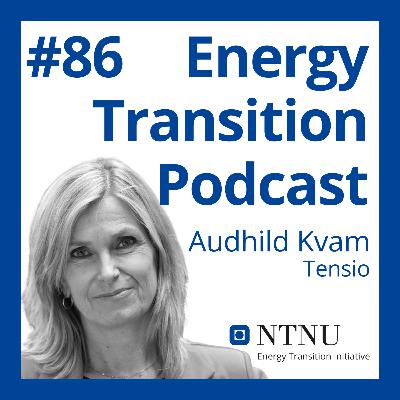
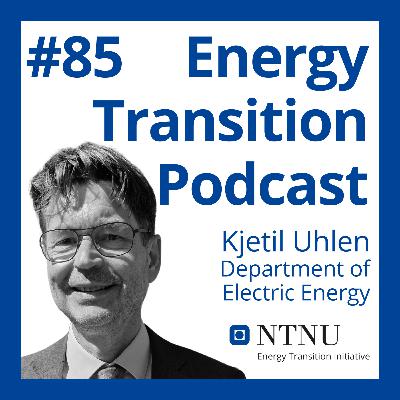
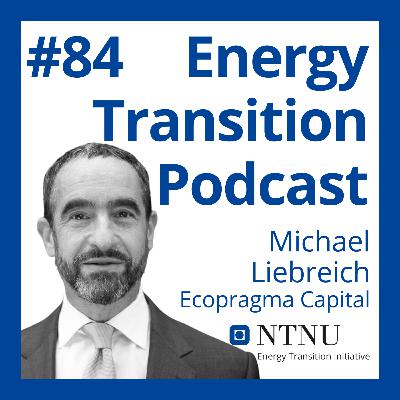
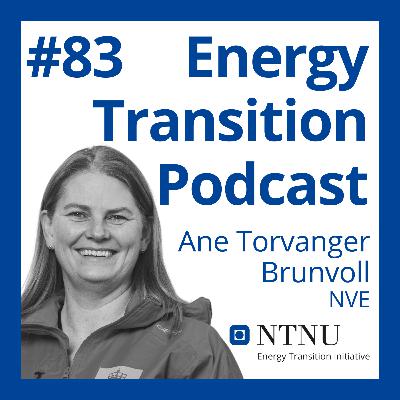
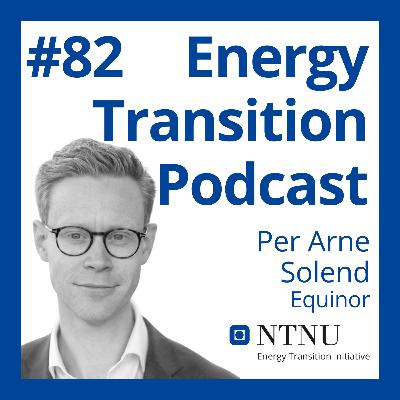

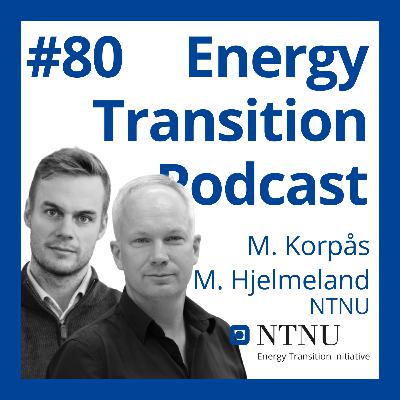
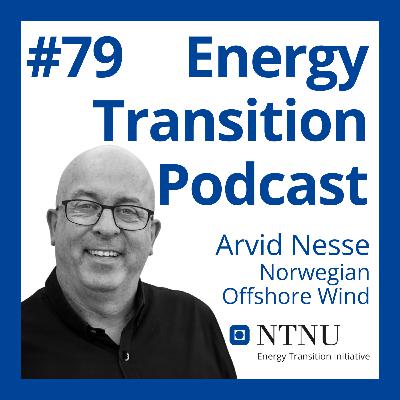
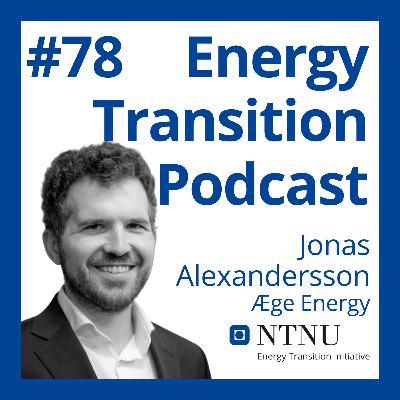


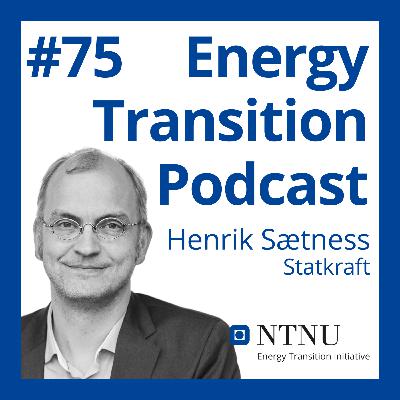
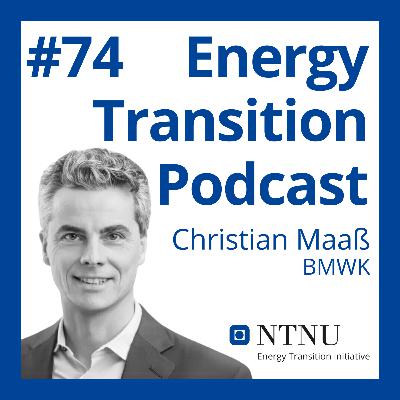
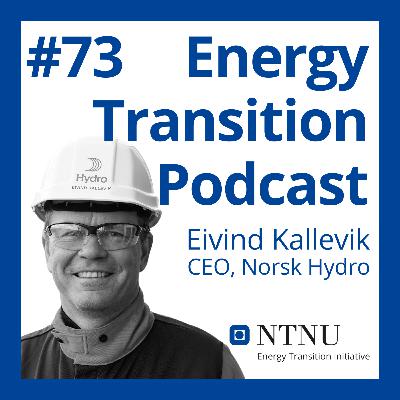
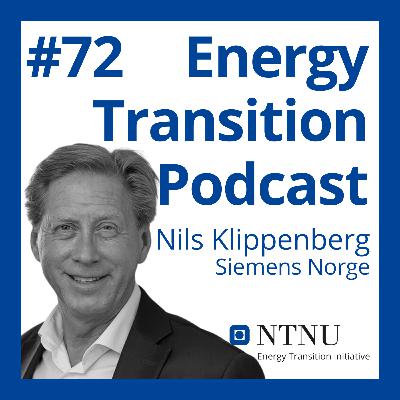
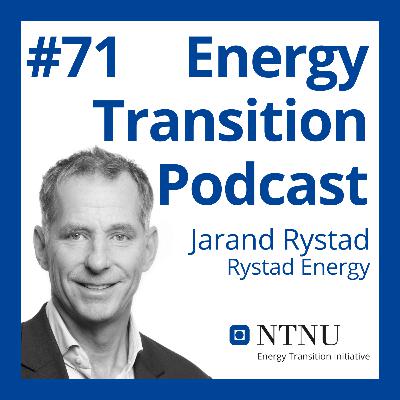
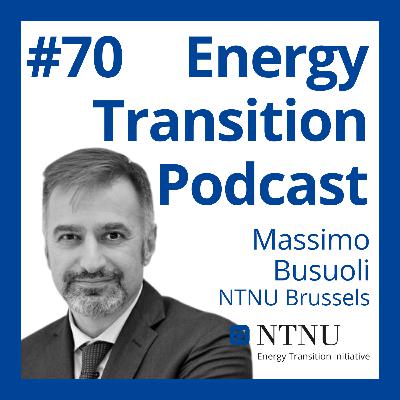
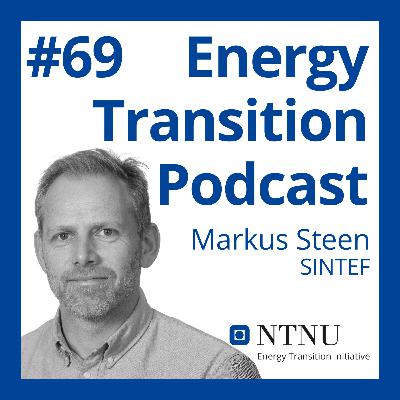
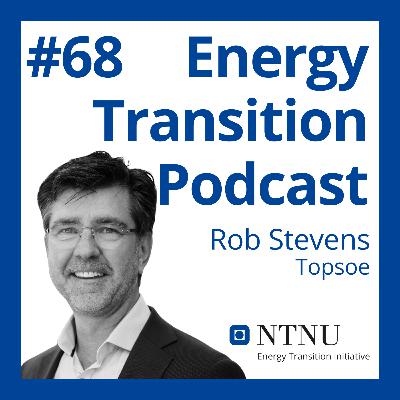
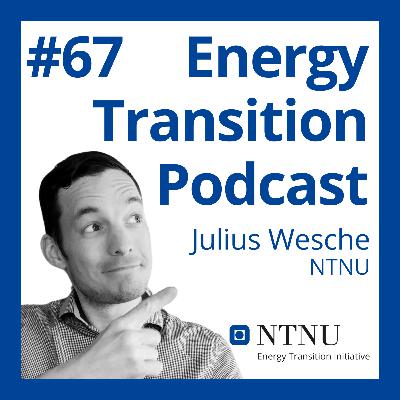



Great, recently I did a lecture on TIS to my class at HVL, and I am going to introduce this episode to them.